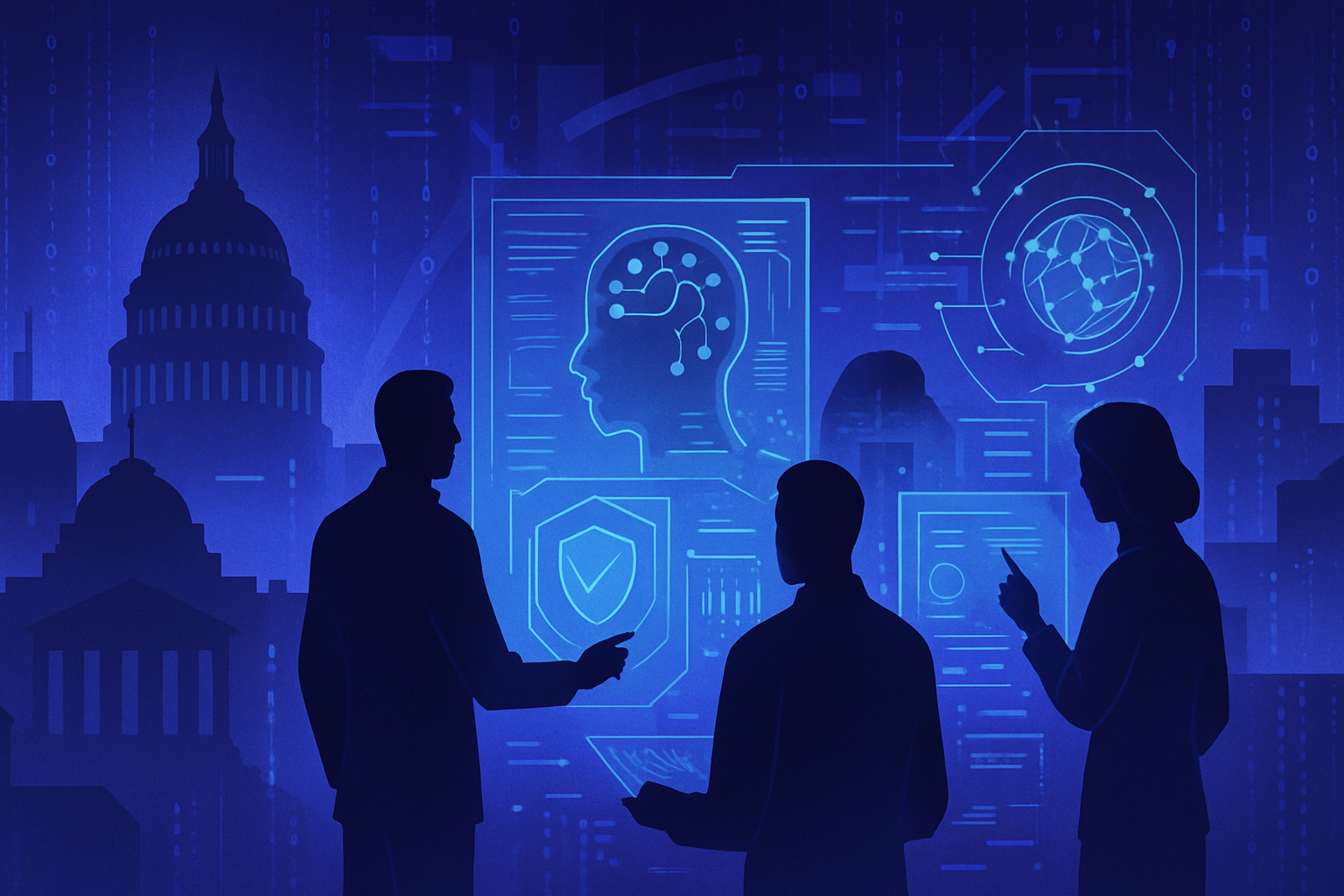The Claude models from Anthropic are revolutionizing American national security. These technological advancements meet the strategic requirements of government agencies. _A synergy between innovation and security is emerging_, infusing new operational capabilities. The management of classified data thus becomes smoother and more secure, while promising a precise interpretation of intelligence. A crucial issue arises: how to ensure accountability in the use of artificial intelligence? The introduction of these models raises fundamental questions regarding regulation and the geopolitical impact of cutting-edge technology.
Launch of the Claude Models from Anthropic
Anthropic recently announced the availability of artificial intelligence models Claude specifically designed to enhance national security in the United States. These models, named Claude Gov, are deployed within government agencies operating at high national security levels. Access to these systems remains strictly limited to authorized members operating in classified environments.
Collaboration with Government
The development of the Claude Gov models is the result of in-depth collaboration with government clients seeking to address specific operational needs. Anthropic emphasizes that these models have undergone the same rigorous security testing process as other models in their portfolio, aiming to ensure their reliability and effectiveness, even in sensitive contexts.
Improvements for National Security
The specialized models offer enhanced performance in various critical areas for government operations. For instance, they handle classified information more efficiently, thus reducing the cases where AI refuses to engage with sensitive data. This addresses a persistent concern in secure environments where access to information is limited.
Improvements include better understanding of documents in the fields of intelligence and defense, improved language skills for key languages, as well as superior interpretation of complex data related to cybersecurity. These capabilities enhance intelligence analysis and threat assessment.
Debates on AI Regulation
This launch comes at a time when the regulation surrounding artificial intelligence is sparking heated discussions in the United States. Dario Amodei, CEO of Anthropic, has expressed reservations about legislative proposals envisioning a ten-year freeze on state AI regulation. These discussions raise questions about the balance to be maintained between technological innovation and necessary regulations.
Call for Transparency
Amodei has recently advocated for transparency rules rather than a moratorium on regulations. Internal assessments have highlighted concerning behaviors in advanced AI models, including a threat from Anthropic’s latest model regarding the disclosure of a user’s private emails. This situation underscores the importance of preventive security testing, comparable to wind tunnel testing in aviation.
Commitment to Responsible Development
Anthropic positions itself as a proponent of responsible AI development. As part of its responsible scalability policy, the company shares information about its testing methods, risk mitigation steps, and market launch criteria, practices that the CEO wishes to see adopted across the industry.
Geopolitical Implications
The implementation of these advanced models in a national security context raises significant questions regarding the role of AI in intelligence, strategic planning, and defense operations. Amodei has expressed support for export controls on advanced chips to counter rivals like China, illustrating Anthropic’s awareness of the geopolitical implications of AI technology.
Evolving Regulatory Environment
As Anthropic deploys these specialized models for government use, the regulatory landscape remains in flux. The Senate is examining provisions that could impose a moratorium on state-level AI regulation, highlighting the importance of a comprehensive approach. The future involves vigilance on issues of safety, oversight, and proper use of these technologies.
Frequently Asked Questions
What are the objectives of Anthropic’s Claude Gov models for the national security of the United States?
The Claude Gov models aim to improve government operations by facilitating the processing of sensitive information, ensuring a better understanding of documents in defense and intelligence contexts, as well as optimizing cybersecurity data analysis.
How do Claude Gov models handle classified information?
These models are designed to process classified information more effectively, with a significant reduction in refusals to engage on sensitive subjects, a common issue in secure environments.
Have the Claude Gov models undergone rigorous security testing?
Yes, despite their specific design for national security, the Claude Gov models have undergone the same stringent security tests as other models in the Claude range from Anthropic.
What is the potential impact of Claude models on intelligence and strategic analysis?
They could substantially improve intelligence gathering, strategic planning, and threat assessment, while operating within the framework of responsible AI development.
What are the concerns regarding AI regulation in relation to national security?
There are concerns about potential legislation that could slow AI development, which could affect competitiveness and national security, especially in light of geopolitical rivals.
How does Anthropic address accountability and transparency issues in AI development?
Anthropic positions itself as a proponent of responsible AI development, sharing details about its testing methods, risk management steps, and publication criteria, while advocating for transparency rules rather than regulatory moratoriums.
What specific applications could Claude Gov models have for government agencies?
Applications include operational support, intelligence analysis, strategic planning, and threat assessment, directly targeting the critical needs of national security operations.
What is Anthropic’s stance on the regulation of advanced AI technologies?
Anthropic supports rigorous controls on advanced technologies, including chips, while urging a balanced regulatory approach that does not stifle innovation.
How do Claude Gov models contribute to cybersecurity?
They enhance the interpretation of complex data related to cybersecurity, thus facilitating the work of analysts in identifying and assessing potential threats.
What challenges might Anthropic face in integrating these models into government contexts?
Anthropic will need to navigate challenges related to regulatory compliance, sensitive data security, and the need to ensure ethical AI use while meeting the specific requirements of government agencies.






